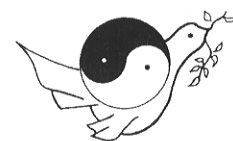
Peace History Society
 |
Peace History Society |
|
Envisioning Peace, Performing Justice: Art, Activism, and Cultural Politics in the History of Peacemaking The Peace History Society seeks proposals for panels and papers from across the humanities, social sciences, and fine and performing arts disciplines that reveal both the artistic and performative dimensions of peacemaking and the vital roles that artists and activists have played as visionaries, critics, interpreters, and promoters of peacemaking efforts around the world. Artists of all kinds—from celebrated professionals to folk, outsider, underground, and guerilla artists—have long put their creative powers in the service of initiatives for peace and justice. At the same time, politicians and peace activists have continually crafted modes of communication, confrontation, celebration, and commemoration that employ elements of theater, fashion, music, dance, visual art, creative writing and, more recently, digital media. These “exhibitions” and “performances” have been presented to audiences of all kinds, in venues as varied as the world’s great museums and performance halls, formal ceremonies and tradition-steeped rituals, university commons and the Internet, as well as coffeehouses, houses of worship, and the streets. Prospective participants are encouraged to conceptualize “artistry,” “envisioning,” “performance, “representation,” “activism,” and “memorialization” in broad terms that will expand historians’ view of peacemaking and activism as art forms and of artistic production as peace activism. We invite critical reflections on, as well as appreciations of, the intersections of oppositional politics with visionary and performative identities and acts. Included among the many questions we hope to explore within this conference theme are:
The Program Committee wishes to emphasize that the theme of “artistic production” is intended to be broadening, not restrictive. Proposals for papers that address variations of the conference theme or issues in peace history outside of this specific theme are also strongly encouraged. Strong conference papers will be considered for publication in Peace and Change to be co-edited by the program co-chairs and Robbie Lieberman, Southern Illinois University Carbondale. For conference updates, visit the PHS website, at www.peacehistorysociety.org Please forward proposals for individual papers or a panel to both program committee chairs by November 1, 2012. Email submissions are greatly preferred. Heather Fryer Andrew Barbero |
http://www.peacehistorysociety.org/
Questions or comments
to the web editor.